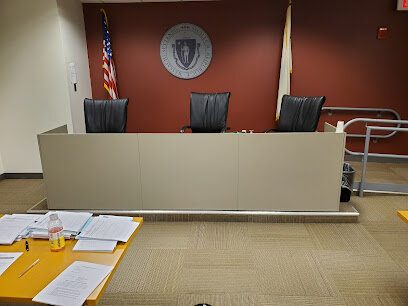
Best Drunk Driving Lawyers in Connecticut
Share your needs with us, get contacted by law firms.
Free. Takes 2 min.
Or refine your search by selecting a city:
List of the best lawyers in Connecticut, United States

About Drunk Driving Law in Connecticut, United States
Drunk driving, legally known as Driving Under the Influence (DUI), is a serious criminal offense in Connecticut. State law prohibits operating a motor vehicle while under the influence of alcohol or drugs that impair your ability to safely drive. The legal limit for Blood Alcohol Content (BAC) is 0.08 percent for most drivers and 0.02 percent for drivers under 21 years old. Both criminal and administrative penalties apply, and consequences can be severe, including fines, license suspension, and possible jail time. Connecticut treats DUI offenses strictly to promote public safety and deter dangerous driving behavior.
Why You May Need a Lawyer
Facing DUI charges in Connecticut can be overwhelming due to the complexity of the law and the potential for serious, long-lasting consequences. Common situations where legal help is crucial include:
- First-time DUI offenses, where understanding plea options and potential penalties is vital
- Repeat offenses, where mandatory minimum penalties and felony charges may apply
- Cases involving accidents, injuries, or fatalities, which may lead to aggravated charges
- Refusing breathalyzer or chemical tests, which results in automatic license suspension
- Commercial drivers facing lower BAC thresholds and stricter sanctions
- Seeking eligibility for diversionary programs like the Pretrial Alcohol Education Program
- Challenging evidence, field sobriety tests, or procedural errors by law enforcement
An attorney can help protect your legal rights, assess the strength of the case against you, advocate for lower penalties, and guide you through court proceedings and DMV hearings.
Local Laws Overview
Connecticut's DUI laws are governed by Connecticut General Statutes Section 14-227a and related sections. Key aspects include:
- The legal BAC limit is 0.08 percent for most drivers; 0.04 percent for commercial drivers; 0.02 percent for drivers under 21
- Implied Consent Law: By driving in Connecticut, you consent to BAC testing. Refusal triggers automatic driver’s license suspension
- Penalties for a first DUI offense may include up to 6 months in jail, fines from $500 to $1,000, and license suspension for 45 days with a requirement to install an ignition interlock device (IID)
- Second and third offenses within 10 years carry increasingly severe penalties, including longer jail time and permanent license revocation
- Participation in the Pretrial Alcohol Education Program may be available for first-time offenders, allowing for possible dismissal after completing education and treatment requirements
- Connecticut participates in the Interstate Driver License Compact, which can impact out-of-state licenses
- Enhanced penalties apply for DUI with minors in the vehicle or resulting in serious injury or death
Understanding these laws is crucial to navigating a DUI charge, as small details can significantly affect the outcome of your case.
Frequently Asked Questions
What qualifies as DUI in Connecticut?
You can be charged with DUI if your BAC is at or above the legal limit, or if you are determined to be impaired by alcohol or drugs regardless of BAC level.
What happens if I refuse a breathalyzer in Connecticut?
Refusing a breathalyzer or chemical test results in automatic license suspension, separate from any criminal penalties, due to the Implied Consent Law.
What penalties do first-time DUI offenders face?
First-time offenders may face up to 6 months in jail, fine amounts between $500 and $1,000, mandatory alcohol education, 45-day license suspension, and ignition interlock device installation.
Can my DUI charge be dismissed?
First-time offenders may be eligible for the Pretrial Alcohol Education Program. Successful completion can lead to dismissal, but eligibility depends on specific circumstances.
Will a DUI conviction stay on my record?
DUI convictions in Connecticut are permanent and cannot be erased, but some diversionary programs may allow first-time offenders to avoid conviction if successfully completed.
How does a DUI affect my insurance rates?
Most insurance companies will significantly increase your rates after a DUI conviction, and some may drop coverage altogether.
What happens if I am under 21 and charged with DUI?
Connecticut has a zero-tolerance policy for drivers under 21. The legal BAC limit is 0.02 percent, and penalties include license suspension and mandatory IID.
Do I need a lawyer for a DUI charge?
While you can represent yourself, hiring a lawyer is strongly advised. DUI law is complex and the consequences are serious. A lawyer can help protect your rights and negotiate for better outcomes.
What is an Ignition Interlock Device, and will I need one?
An IID is a breathalyzer attached to your vehicle’s ignition. After a DUI conviction or administrative suspension, you may be required to install and use an IID for a set period.
How long does a DUI case take to resolve?
DUI case timelines vary depending on court schedules, plea negotiations, diversions, and hearings. Cases may resolve in a few weeks or take several months if contested.
Additional Resources
If you need more information or support regarding DUI in Connecticut, consider contacting these resources:
- Connecticut Department of Motor Vehicles (DMV) - Driver’s license suspensions and IID programs
- Connecticut Judicial Branch - Information about DUI court processes and diversionary programs
- Connecticut General Assembly - State statutes related to motor vehicle offenses
- Connecticut Bar Association - Referrals for experienced DUI attorneys
- Mothers Against Drunk Driving (MADD) Connecticut Chapter - Education, advocacy, and support services
- Substance abuse counselors and local treatment providers - Required for some court-ordered programs
Next Steps
If you have been charged with DUI in Connecticut, act promptly. Consider the following steps:
- Do not ignore paperwork or court notices. Failing to act can lead to additional penalties
- Write down everything you remember about your traffic stop and arrest while details are fresh
- Consult an experienced criminal defense or DUI attorney for a case assessment
- Gather documents, such as your ticket, DMV notifications, and testing results
- Ask your attorney about options for diversionary programs, plea deals, or defenses
- Follow all court and DMV instructions for hearings, deadlines, and required actions
- Begin any recommended or required treatment or education programs as soon as possible
Facing a DUI charge is a serious matter, but understanding your rights and acting quickly can help you reach the best possible resolution. Legal help is often essential to navigate the complexities and protect your future.
Lawzana helps you find the best lawyers and law firms in Connecticut through a curated and pre-screened list of qualified legal professionals. Our platform offers rankings and detailed profiles of attorneys and law firms, allowing you to compare based on practice areas, including Drunk Driving, experience, and client feedback.
Each profile includes a description of the firm's areas of practice, client reviews, team members and partners, year of establishment, spoken languages, office locations, contact information, social media presence, and any published articles or resources. Most firms on our platform speak English and are experienced in both local and international legal matters.
Get a quote from top-rated law firms in Connecticut, United States — quickly, securely, and without unnecessary hassle.
Disclaimer:
The information provided on this page is for general informational purposes only and does not constitute legal advice. While we strive to ensure the accuracy and relevance of the content, legal information may change over time, and interpretations of the law can vary. You should always consult with a qualified legal professional for advice specific to your situation.
We disclaim all liability for actions taken or not taken based on the content of this page. If you believe any information is incorrect or outdated, please contact us, and we will review and update it where appropriate.
Browse drunk driving law firms by city in Connecticut
Refine your search by selecting a city.









